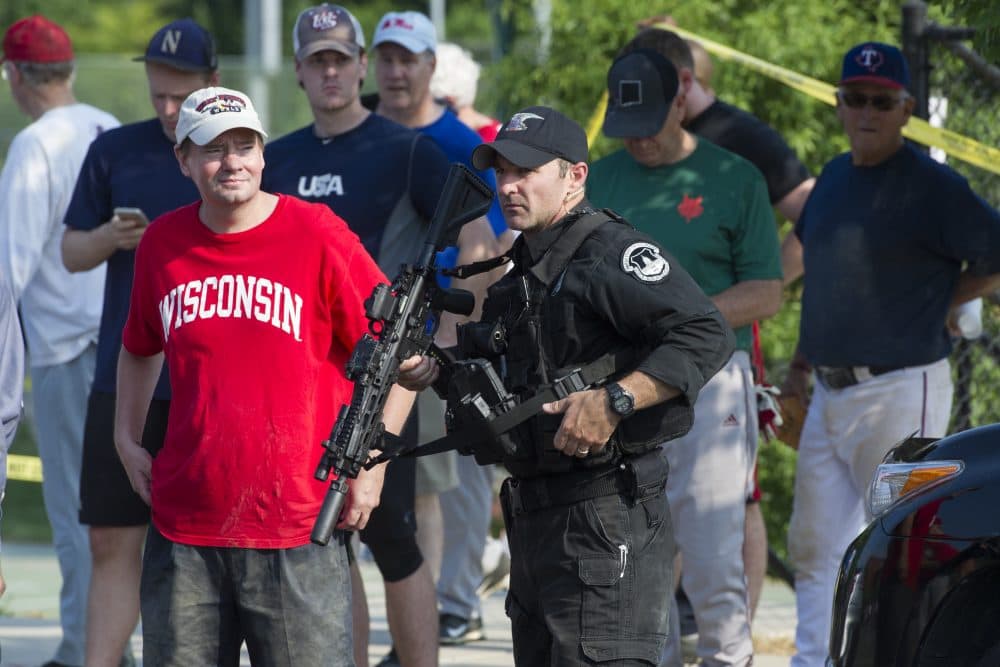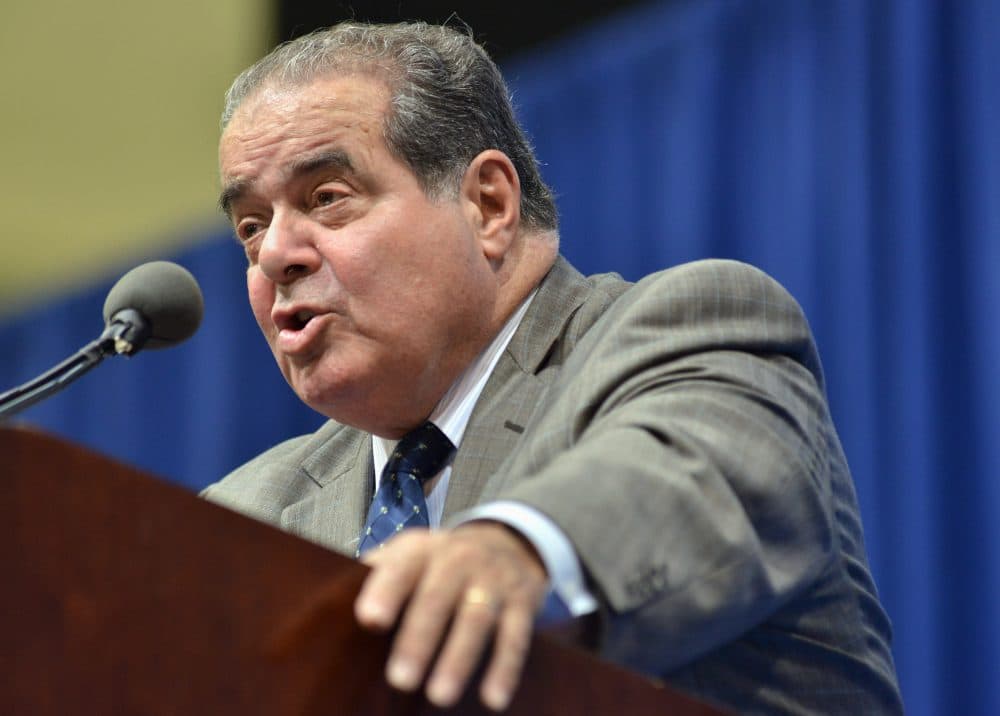Advertisement
Commentary
After Congressional Baseball Shooting, We Need To Talk About Gun Control

James T. Hodgkinson, who died in a shootout with police Wednesday after wounding Congressman Steve Scalise and four others, apparently had a valid gun license. Whether or not he came by his weapons legally, the tragedy is bound to reopen our gun control debate and the assertion by Second Amendment fundamentalists, contrary to the view of most firearms owners, that gun control is unconstitutional.
They're wrong. I have this on good authority from two expert sources — the late Justice Antonin Scalia, and the Founders who wrote the Constitution.
Gun-rights advocates may quote the Second Amendment robotically, but ... they apparently skip over its insistence that any militia be “well regulated.”
Before his death last year, Scalia was the Supreme Court’s conservative brain, devoted to interpreting the founding document with what he saw as the intent of its drafters. Those founding fathers famously quill-penned the Second Amendment: “A well-regulated Militia, being necessary to the security of a free State, the right of the people to keep and bear Arms, shall not be infringed.” So it will pop the bubble wrap in extremists’ minds to hear that in not allowing restrictions on firearms, they’ve been genuflecting to a myth.
That’s because they’ve skated over inconvenient words from both the men who wrote the Constitution and Scalia, their medium.
Start with the latter. Gun control advocates cite his words in District of Columbia v. Heller, which at first blush is odd, since that 2008 case saw the high court uphold an individual’s right to bear arms without serving in a state militia. Yet Scalia, writing the majority opinion, declared, “Like most rights, the right secured by the Second Amendment is not unlimited,” adding that it “is not a right to keep and carry any weapon whatsoever in any manner whatsoever and for whatever purpose.”
“Nothing in our opinion should be taken to cast doubt” on legislated “conditions and qualifications on the commercial sale of arms,” he wrote. Scalia also OK’d restrictions in “sensitive places such as schools and government buildings” and on felons and the mentally ill.

“These categories capture the vast majority of gun laws in America,” says UCLA constitutional law professor Adam Winkler. “In short, there’s plenty of room under the Second Amendment for gun control.”
Unnerving as those words will be to people who support fewer restrictions, they might suggest Scalia was an apostate from the Founder’s views. Uh-uh. Gun-rights advocates may quote the Second Amendment robotically, but, Winkler notes, they apparently skip over its insistence that any militia be “well regulated.”
Early America lived by that modifier, Fordham University historian Saul Cornell says: “For instance, starting in the colonial period, states enacted a variety of ‘safe-storage’ measures to deal with the danger posed by stored gunpowder. A 1786 law went as far as prohibiting the storage of a loaded gun in any building in Boston.” Such laws, including early versions of gun registration, Winkler says, were “so restrictive that today’s NRA leaders would never support them.”
Gun advocates will point out that Hodgkinson’s rampage was itself stopped by guns, when police killed him -- glossing over the fact, as they gloss over the Second Amendment’s inconvenient words and history, that no one objects to trained police with guns.
Of course, the Founders permitted any number of things that would make moderns cringe — slavery comes to mind — so rights advocates are free to argue that the drafters’ views on guns were wrong. But they can't cloak extremism with phony Second Amendment protections, and anyway, it’s hard to come up with a defense for such extremism that passes the giggle test, as Scalia’s writing attests.
Beyond the restrictions permitted by the Heller opinion, judges spanning the ideological spectrum have upheld other gun controls, such as assault weapon bans. Even legal scholars who disagree with these rulings concede there are a lot of them. It’s true that in a culture steeped in gun ownership, laws alone will never be enough to end America’s firearms carnage. Other measures that account for the resilience of that culture will be necessary as well.
But as this week’s atrocity recycles our endless gun control debate, it’s worth remembering a less familiar point. Those who think the Constitution permits unfettered gun possession should read it first.
